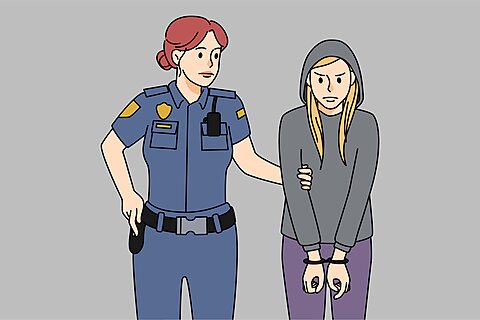In 2019, Colorado lawmakers reduced possession of up to four grams of most controlled substances to a misdemeanor. Distribution or sale of controlled substances remained felonies. The law took effect as the fentanyl wave was making its way across the country, from east to west, and shortly before the COVID-19 pandemic caused a spike in alcohol and illicit drug use and fentanyl-related overdose deaths.
The increase in overdose deaths, some of which were featured in local and national news reports, caused lawmakers to pass and the governor to sign a bill in 2022 refelonizing drug possession. It reclassified drug possession as a Class 4 felony, forced people convicted of possession to undergo a clinical assessment for substance use disorder, and authorized courts to mandate treatment at their discretion. The bill also authorized increased funding to distribute naloxone and fentanyl test strips and to expand mental health services in the state. Some lawmakers pushed, unsuccessfully, to classify fentanyl as a “weapon of mass destruction” and to impose harsh mandatory minimum sentences.
The Colorado story closely resembles what happened in Oregon. There, voters approved a ballot initiative decriminalizing possession of small amounts of controlled substances and provided increased funding for harm reduction programs. The bill took effect in February 2021—as the state locked down in response to the raging COVID-19 pandemic—and as the fentanyl wave crested in the Pacific Northwest. That reform died in the crib as lawmakers reversed course and recriminalized drug possession in 2024.
Colorado’s refelonization law commissioned a team of researchers from the University of Colorado School of Medicine and the Kaiser Permanente Colorado Institute for Health Research to study its effects. They reported their findings earlier this year.
The report found no correlation between refelonization or mandatory drug rehab, and overdose rates. Cole Jurecka, one of the co-authors, told Filter Magazine, “I was not surprised by the fact that overdoses did not decrease and stayed the same or increased for certain populations.” Jurecka continued:
The most surprising finding for me was that retention on certain medications for opioid use disorder did not increase—in fact, [it] decreased for methadone—given the fact there were some small provisions in the law that would in theory help people access these drugs more easily. That was not the case.
The report found a slight decrease in overdose deaths in Colorado in 2024—a trend seen across the country. I speculate about why overdose rates have been dropping here and here.
Thus, increasing criminal penalties and mandating treatment did not improve outcomes. This should surprise no one. Researchers have long known that increased penalties and mandatory minimum sentences do not curtail drug use and overdose deaths. Mandating treatment fares no better and might make matters worse.
In my book Your Body, Your Health Care (Chapter 11), I write:
Addiction is a compulsive behavioral disorder characterized by continually using a substance or engaging in an activity despite the negative consequences. Jail is a negative consequence. Neither jail nor the less negative alternative of a forced stay in a rehab facility are likely to make anyone overcome their addiction unless they are deeply motivated to do so at the outset. Research shows that involuntary treatment usually doesn’t work. In fact, research suggests that coercing drug treatment might increase the risk of subsequent overdose. A 2016 systematic review of research on compulsory rehab found no evidence of improved outcomes, with some studies suggesting that compulsory rehab did more harm than good. A 2017 report by the Massachusetts Department of Public Health found that fatal overdoses were twice as high among people who were subjected to compulsory treatment compared to those who entered treatment voluntarily. This is because patients complete mandatory treatment but still retain their underlying compulsive disorder. After release from the treatment program, they have a high relapse rate. Because they had abstained from drug use while in treatment, their tolerance level has dropped, and they are more prone to overdose when they resume taking their usual dose of the drug.
To be sure, there are some examples of people who respond well to compulsory treatment, but such patients are highly motivated when treatment begins. People who might fit that description include commercial airline pilots or medical doctors, who face losing their license—and their careers—unless they enter drug rehab. But they are exceptions to the rule.
However, the most important reason why coercive treatment is wrong is that it is an affront to personal autonomy. Treatment versus jail time does not equal informed consent.
The evidence is clear: criminalizing drug possession and mandating treatment don’t save lives—they may even cost them.
If policymakers are serious about addressing addiction and overdose, they must abandon punitive reflexes and start trusting people to make their own health decisions. Autonomy, compassion, and evidence—not fear—should guide policy.



